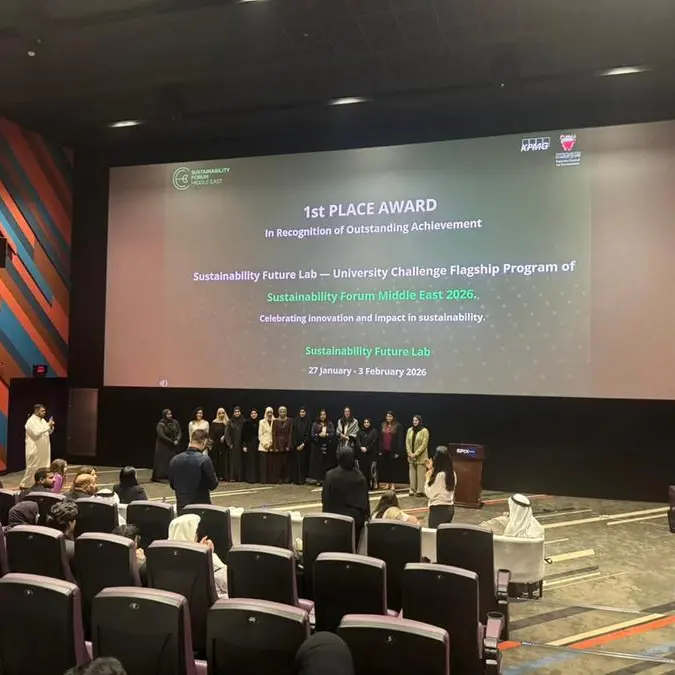PHOTO
- The high-profile roundtables focused on Data Regulation & Policies; Computing & Digital Infrastructure; Funding & Finance; Talent Ecosystem
Dubai-UAE:– Some 2,500 AI experts, policymakers, and industry leaders today engaged in crucial discussions to progress tangible AI-related policy and innovation and understand how best to lay solid foundations for AI adoption across core economic sectors. Organised collaboratively by the Dubai Centre for Artificial Intelligence (DCAI) and the National Programme for Artificial Intelligence, the AI Retreat 2024 is the debut event to run under the Dubai Universal Blueprint for Artificial Intelligence (DUB.AI) and sets the stage for Dubai’s evolution into a global AI hub.
Convening participants from the public and private sectors, the four themed roundtables underscored DUB.AI’s commitment to accelerating the adoption of AI applications in the emirate, supporting the objectives of the Dubai Economic Agenda D33, and contributing AED 100 billion annually to Dubai's economy by boosting the digital economy and increasing productivity by as much as 50%.
The roundtables focused on the ethical, social, and economic challenges around AI deployment and adoption across four central themes, identifying the most transformational solutions to overcome these challenges.
Roundtable 1: Data Regulation and Policies
This roundtable highlighted the imperative for robust data regulation and policies to foster the growth and ethical development of the AI industry in Dubai. Participants discussed the current regulatory landscape to identify gaps and proposed actionable strategies to ensure data privacy, security, and alignment with international standards. Harnessing just 10% of the available data worldwide presents a massive opportunity. AI tools are essential for gathering diverse data and improving sector efficiency. Governments must enable private sector access to government data while protecting national security and competitive advantage, ensuring ethical use of data.
Participants noted the importance of integrating Arabic into AI through the digitisation of cultural products. This initiative will allow AI models to be trained on Arabic content, reducing bias and promoting the Arabic language in the digital era.
Proposals included creating an AI innovation centre to engage the community in developing AI tools tailored to Dubai's diverse needs and establishing a data hub to facilitate the sharing and monetisation of data, enhancing the value of Dubai’s data assets. Key opportunities in AI implementation discussed included ensuring ethical use without bias, maintaining data privacy, fostering public trust, enabling cross-border data flows, and cultivating AI talent. The goal is to position Dubai as a leader in responsible and inclusive AI adoption, leveraging its diverse data resources and strategic partnerships to establish frameworks for ethical AI governance and effective data commercialisation.
Roundtable 2: Computing and Digital Infrastructure
Participants debated the critical role of computing and digital infrastructure in advancing the competitiveness of Dubai’s AI industry. They examined the current state of the infrastructure, future needs, and strategies for building a world-class digital backbone. Recommendations included developing a strategic roadmap for investments in infrastructure to enhance computational power, data storage, and connectivity.
The discussion highlighted the need for adaptive regulatory frameworks that foster innovation while ensuring ethical AI deployment. Participants emphasised bolstering the intellectual property environment to support the growth of startups and facilitate their connection to larger markets. Key outcomes included calls for significant investments in digital infrastructure to improve computational power, data storage, and connectivity, alongside the integration of AI in various sectors to boost productivity and efficiency. The roundtable also stressed the importance of sustainable practices in AI development to address environmental concerns, ensuring a balanced approach to technological advancement.
Roundtable 3: Funding and Finance
This roundtable explored the financial landscape necessary to support Dubai’s AI industry, highlighting funding opportunities, investment strategies, and financial instruments that can accelerate growth and innovation.
Participants emphasised that while substantial investments in AI capacity building exist, the existing infrastructure is predominantly tailored for cloud computing rather than AI-specific needs. To harness AI's potential, there must be a concerted effort to establish the right infrastructure, despite the associated costs. The discussion underscored the importance of leveraging regional and global talent, not just local expertise, to cultivate a robust AI ecosystem. The need for coherent regulation, streamlined objectives, and better collaboration between the public and private sectors was also highlighted.
Aligning funding goals and facilitating public participation as investors were seen as critical steps to create In-Country Value and unlock fast investment routes for AI startups. This joint effort between government and private entities is crucial to ensure quality financing and sustained growth in the UAE’s burgeoning AI sector.
Roundtable 4: Talent Ecosystem
The final roundtable focused on the Talent Ecosystem, a game-changer in adopting new technology. Participants outlined a comprehensive strategy to develop and attract world-class AI talent, emphasising the need for a collaborative, inclusive, and accountable AI environment with a unified policy framework. Key priorities included transforming education to meet industry needs, introducing skills as the new currency, and embedding AI across all curricula from an early stage.
Discussions included introducing new initiatives to exponentially increase AI adoption, involving government, academia, and industry to enhance AI capabilities and talent pools. Proposed programmes would empower talent for the next decade and ensure sustained development and implementation of AI strategies in Dubai.
The workshop highlighted the need for improved collaboration between academia, industry, and government and evolving skill requirements to keep pace with technology. Recommended outcomes included developing collaborative platforms for universities and industry partners, accelerating AI-focused startups, and implementing knowledge transfer partnerships. Addressing these challenges will position Dubai as a leading hub for AI talent and innovation, contributing to the global AI landscape.
The AI Retreat 2024 in Dubai was held under the patronage of His Highness Sheikh Hamdan bin Mohammed bin Rashid Al Maktoum, Crown Prince of Dubai, Chairman of the Executive Council of Dubai, and Chairman of the Board of Trustees of the Dubai Future Foundation.
-Ends-




















